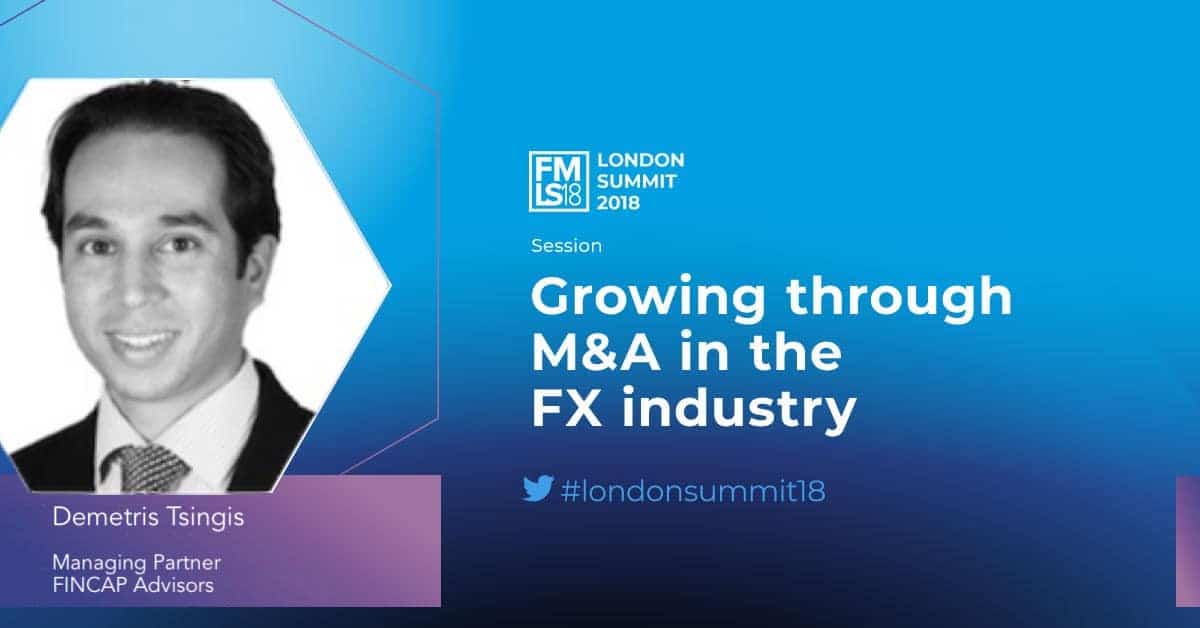With the weeks winding down until London Summit 2018, Finance Magnates continues to interview some of the event’s participating speakers. In this latest piece, we look at the ongoing impact of regulations as they pertain to what has become a new status quo for brokers.
Indeed, 2018 has seen some of the largest regulatory moves in recent years, stoking fears of broad-based industry consolidation. Are these fears overblown or an accurate assessment of what is to come heading into year-end and 2019? Demetris Tsingis touches on these topics, grappling the nuisances of the FX industry while also offering up advice to brokers during a brief interview.
What is your position and what does your role entail?
I am the Managing Partner of FINCAP Advisers, and my role entails being involved in the authorization and post-authorization provision of professional services to regulated entities inclusive of brokers/market makers in over 20 jurisdictions inclusive of FCA, CySEC , CIMA, Mauritius FSC and ASIC inter alia.
What is the single most important market event or development in 2018 so far?
The restriction of leverage to 1:30 announcement.
What are the biggest challenges that the FX trading community is facing?
Significant regulatory changes for FX brokers in Europe have diminished profitability and increased capital requirements.
How do they affect your field?
Many start-ups are looking for moving their business outside Europe and targeting non-EU Markets. New applicants for EU licenses are significantly less, and many existing brokers are looking to wind down or sell their business.
Where should brokers look at when seeking areas for growth?
Brokers should explore new products or investment services like algorithmic trading, electronic marketing and departing from the redundant call center model, Forex academies, crypto related products, and activities. Additionally, moving into more traditional products such as investment funds but for FX or crypto assets can help.
Changes in regulation could stir further consolidation in the retail FX space, but brokers often find it difficult to find buyers. What should they do to make their shop attractive for an M&A?
Brokers can streamline costs and see how to establish partnerships with affiliates now looking to regulate themselves due to the end of the unregulated call center model.
Demetris Tsingis will be speaking at the upcoming London Summit 2018 regarding operations and opportunities in M&A activity across the FX industry. The in-depth session will be held on November 14 from 15:30-16:00. Learn more and register here today!


















